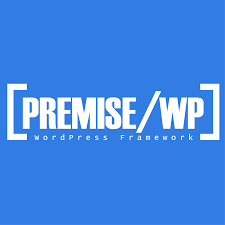
Premise (WordPress membership module)
Learn how to integrate Premise, a WordPress membership module, with Post Affiliate Pro to enhance your membership site and affiliate management through a dedica...

Integrate WordPress with Post Affiliate Pro for features like click tracking, affiliate sign-up, and SEO-friendly links. Compatible with plugins like WooCommerce and MemberPress.
An open source blog tool and publishing platform.
You can find more info about the plugin in the plugin website (link below).
Our plugin currently supports these features:
The plugin automatically integrates with:
Go to plugin home page, and download it from there. You can find installation instructions here. Extended setup guide can be found here.
WordPress is a powerful open-source content management system (CMS) that enables users to create, manage, and publish web content with ease. Originally developed as a blogging platform, WordPress has evolved into a versatile tool that supports a wide range of websites—from personal blogs and portfolios to complex e-commerce stores and enterprise sites. Built on PHP and MySQL, WordPress offers extensive customization options through thousands of themes and plugins, making it a flexible solution for various web development needs.
Founded in 2003 by Matt Mullenweg and Mike Little as a successor to the b2/cafelog platform, WordPress has undergone significant transformations over the years. The initial release introduced a simple admin interface and basic template customization. In 2004, the introduction of a plugin architecture allowed developers to extend WordPress’s functionality beyond its core features.
By 2010, WordPress MU merged with the main WordPress platform, enabling multi-site capabilities that appealed to larger organizations and networks of sites. The launch of the Gutenberg block editor in 2018 marked another milestone, offering users a more intuitive and flexible content editing experience. Recent enhancements include REST API integration, full-site editing capabilities, and support for modern development standards, solidifying WordPress’s position as a leading CMS.
WordPress caters to a diverse audience, including individual bloggers, small to medium enterprises (SMEs), large corporations, developers, freelancers, and e-commerce operators. Its user-friendly interface and scalability make it an attractive option for beginners and seasoned professionals alike.
While WordPress.org itself is free to download and use, creating a website requires hosting and a domain name, which can range from $3 to $100 per month depending on the provider and services chosen. WordPress.com offers a variety of plans:
Each tier enhances the features and support available, allowing users to choose the plan that best fits their needs.
Overall Experience: Users generally praise WordPress for its flexibility and ability to adapt to changing needs. While it may present challenges for beginners, the platform’s extensive capabilities often outweigh the initial learning hurdles.
WordPress Review: Is It Still The Best Website Builder in 2023?
A critical analysis of WordPress’s current standing in the market, discussing its features, usability, and whether it remains a top choice.
WordPress vs Other CMS Platforms – 2023 Edition
A comparative review that examines how WordPress stacks up against other leading CMS options, highlighting strengths and weaknesses.
While WordPress is a versatile and popular choice, several alternatives might better suit specific needs:
WordPress is an open-source content management system (CMS) that allows users to create, manage, and publish websites easily. Its flexibility and extensive plugin ecosystem make it suitable for everything from blogs to complex e-commerce sites.
With the official Post Affiliate Pro plugin, you can enable click tracking, affiliate sign-up, shortcodes, and widget integration. The plugin automatically works with popular plugins like WooCommerce, MemberPress, and many others.
Yes, the plugin itself is free to download from the WordPress.org repository. However, using Post Affiliate Pro software requires a subscription.
The integration supports click tracking, affiliate sign-up, a top affiliates widget, affiliate shortcodes, and seamless compatibility with plugins such as WooCommerce, Contact Form 7, MemberPress, Easy Digital Downloads, and more.
No coding skills are required. Simply install the plugin from the WordPress repository and follow the provided installation and setup guides.
Yes, alternatives include Drupal, Joomla, Magento, Wix, Shopify, Squarespace, Ghost, Weebly, Webflow, and Medium, each offering unique features and integration capabilities.
Lucia is a talented content editor who ensures the seamless publication of content across multiple platforms.
Discover how easy it is to boost your affiliate program by integrating WordPress with Post Affiliate Pro. Experience seamless tracking, affiliate signup, and powerful plugin compatibility.
Learn how to integrate Premise, a WordPress membership module, with Post Affiliate Pro to enhance your membership site and affiliate management through a dedica...
Discover the top 10 WordPress affiliate plugins for 2025 to boost your online business. Explore features, pricing, and expert recommendations for the best affil...
Would you like to improve your affiliate software even more? Check out the WordPress ecommerce plugin for Post Affiliate Pro.


